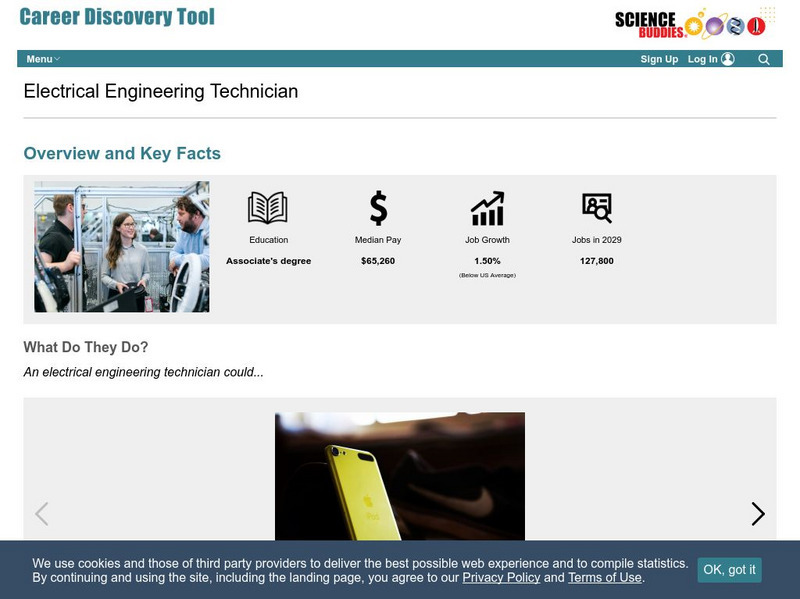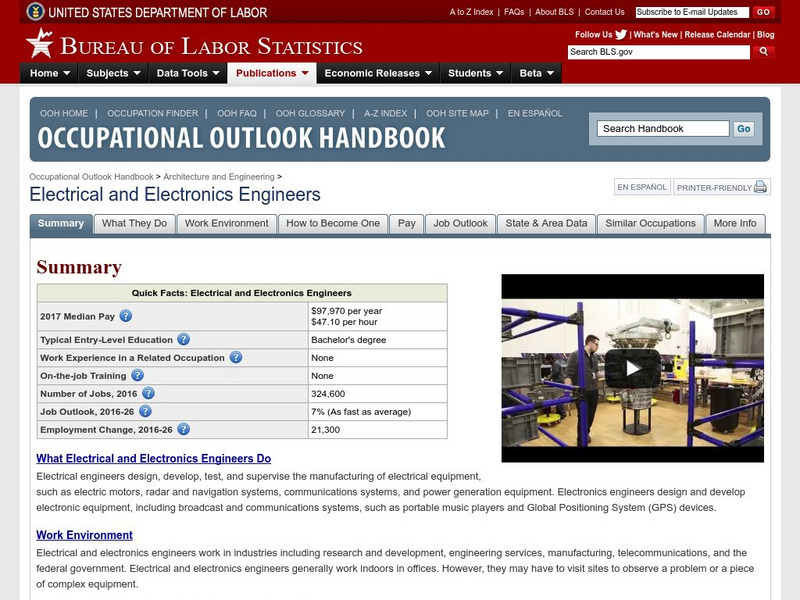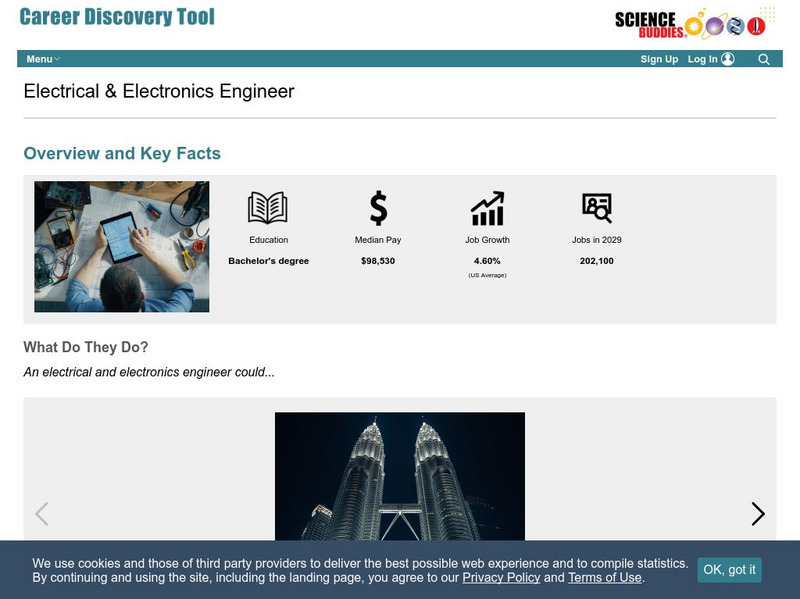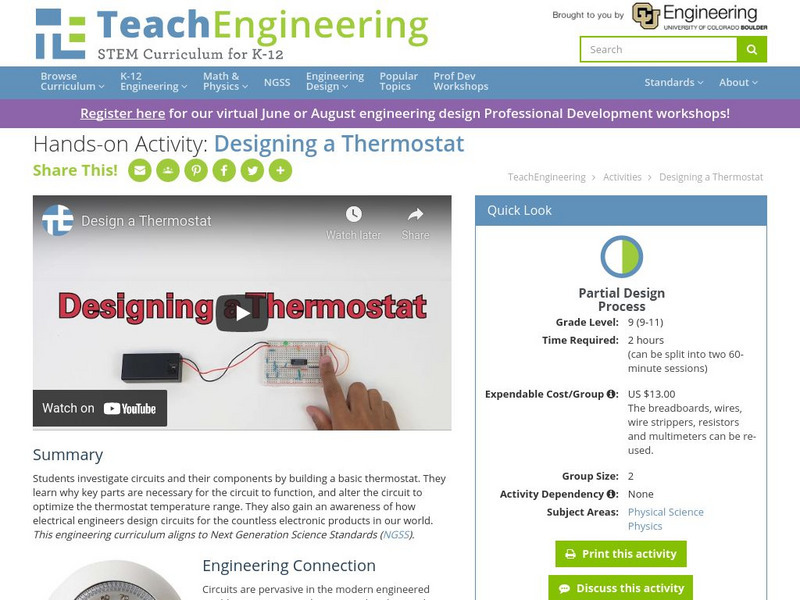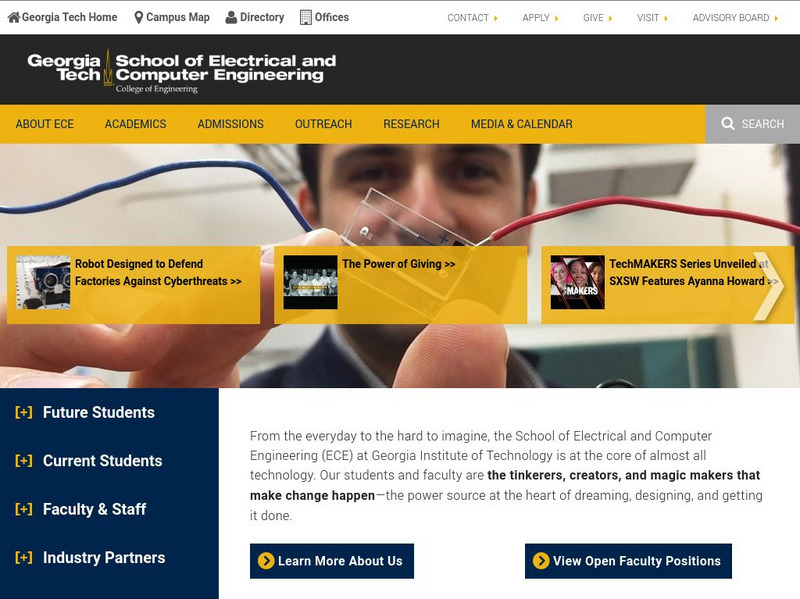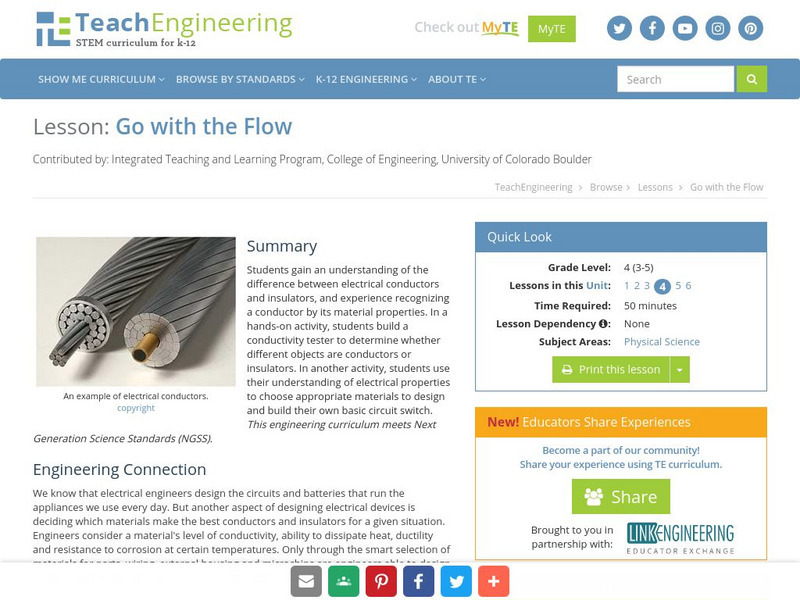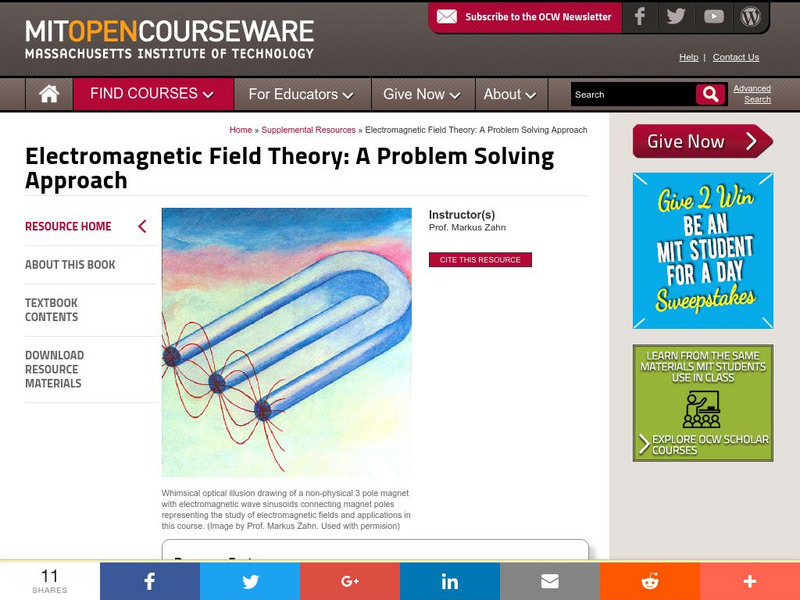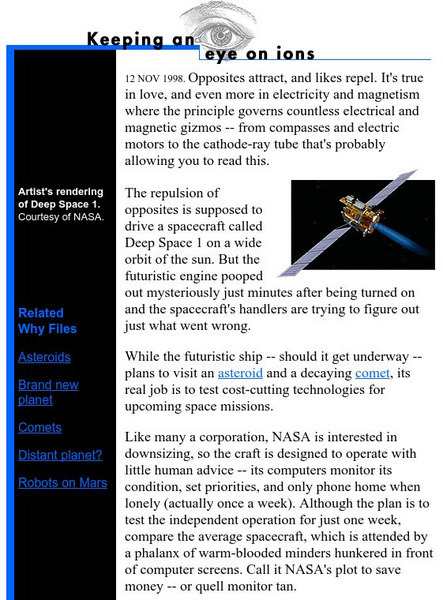Science Buddies
Science Buddies: Career Profile: Electrical Engineering Technician
Find out how the electric engineering technician assists in the research and development of electrical equipment, among other things. This Science Buddies site lays out the requirements needed to become a electrical engineering...
US Department of Labor
Bureau of Labor Statistics: Electrical Engineers
This resource provides information about electrical engineer careers.
Science Buddies
Science Buddies: Career Profile: Electrical and Electronics Engineer
Find out about the many pathways available to one who has a career as an electrical or electronics engineer. Design video games, cell phones, GPS systems, anything that requires electricity to work. This Science Buddies site lays out the...
TeachEngineering
Teach Engineering: Designing a Thermostat
Students investigate circuits and their components by building a basic thermostat. They learn why key parts are necessary for the circuit to function, and alter the circuit to optimize the thermostat temperature range. They also gain an...
Other
Georgia Tech School of Electrical and Computer Engineering
Homepage of the Georgia Tech School of Electrical and Computer Engineering. This site contains information about ongoing research, academics, facilities, faculty, etc. at the university.
TeachEngineering
Teach Engineering: Go With the Flow
Students gain an understanding of the difference between electrical conductors and insulators, and experience recognizing a conductor by its material properties. In a hands-on activity, students build a conductivity tester to determine...
TeachEngineering
Teach Engineering: Lights Out!
This lesson introduces the concept of electricity by asking students to imagine what their life would be like without electricity. Two main forms of electricity, static and current, are introduced. Students learn that electrons can move...
TeachEngineering
Teach Engineering: Am I on the Radio?
During this activity, students create a working radio by soldering circuit components supplied from an AM radio kit. Since this activity is carried out in conjunction with the associated lessons concerning circuits and how an AM radio...
TeachEngineering
Teach Engineering: Hands on Activity: Designing a Thermostat
By building a basic thermostat, students will explore basic circuitry and electricity. The thermostat built out of a breadboard, temperature sensor chip, amplifier, and battery creates a linear relationship between temperature of the...
TryEngineering
Try Engineering: Conveyor Engineering
Students learn about the engineering design process as they design, build, test, and evaluate a conveyor system made with everyday items than can move pieces of candy 4 feet including a 90 degree turn. The objective of the lesson is to...
PBS
Pbs Learning Media: Off the Grid
This interactive activity produced for Teachers' Domain presents users with three hypothetical scenarios in which they are challenged to design a wind power system that will meet their electrical needs.
Science Buddies
Science Buddies: Career Profile: Power Distributors and Dispatcher
Science Buddies profiles careers you perhaps never even considered. Do you know what a power distributor and dispatcher does? Someone has to control the flow of electricity along the transmission lines to be sure nothing takes the power...
PBS
Pbs Learning Media: Solar House
In this What's Up in the Environment? video segment, an electrical engineer in Virginia and his 13-year-old son explain how they produce electricity in their home. [3:58]
Massachusetts Institute of Technology
Mit: Open Course Ware: Resources: Electromagnetic Field Theory
College-level electrical engineering textbook starting from the Coulomb-Lorentz force law on a point charge. Sample problems that reinforce the content are found at the end of each chapter. Includes downloadable excerpts of the textbook...
Massachusetts Institute of Technology
Mit: Inventor of the Week: Nikola Tesla: The Electro Magnetic Motor
Use this site to learn about the inventor of the electro-magnetic motor, Nikola Tesla. Find out why Tesla's experimentation with alternating current was so important to later inventions and use of electricity.
TryEngineering
Try Engineering: The Power of Graphene
In this engineering instructional activity, students learn about nanotechnology, graphene, and its electrical properties and applications. Teams of students test graphene to determine whether it is an electrical conductor or insulator,...
TeachEngineering
Teach Engineering: Powering the u.s.
This instructional activity provides students with an overview of the electric power industry in the United States. Students also become familiar with the environmental impacts associated with a variety of energy sources.
National High Magnetic Field Laboratory
Magnet Academy: James Watt
The Scottish instrument maker and inventor James Watt had a tremendous impact on the shape of modern society. His improvements to the steam engine were a significant factor in the Industrial Revolution, and when the Watt engine was...
Energy for Sustainable Development
Esd Bulgaria: Kids & Energy: Energy Pioneers: Sebastian Ziani De Ferranti
A profile of Sebastian Pietro Innocenzo Adhemar Ziani de Ferranti, who was an electrical engineer and an inventor. He lived from 1864 to 1930, and designed the first modern power plant using a system that is still in use today.
Other
National Renewable Energy Laboratory: Junior Solar Car Competition
A design challenge through which students design and construct a solar-powered model car to compete in a road race. Students work in teams using the engineering design process to select the optimal gear ratio and components.
University of Wisconsin
The Why Files: Keeping an Eye on Ions
Discusses the development of a new rocket engine that operates by the ion propulsion as opposed to gas propulsion. Well written and great graphics!
Creative Science Centre
Creative Science Centre: Dc Converter and Electrical Storage for Shake a Gen
This simple device uses a few components to rectify the alternating current (AC) from the shake-a-gen, store it in a capacitor and convert it into a steady direct current (DC). The output can be used to run a low power device. It is also...
TryEngineering
Try Engineering: Series and Parallel Circuits
The core of this lesson is simple circuits and the differences between parallel and series circuit design. Students perform experiments to test the differences between the two circuit designs using low voltage light bulbs.
PBS
Pbs Learning Media: Smart Bridges
In this video segment adapted from NOVA scienceNOW, learn about engineering innovations that could help detect a bridge's structural weaknesses before they become dangerous. [5:21]
